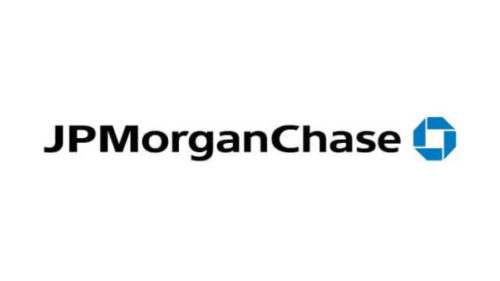The Banking and financial services industry plays a vital intermediary role in the world economy as it moves money from entities with excess funds to those with a need for funds. It includes firms that are engaged in activities such as investing, lending, insurance, securities trading, and securities issuance. Its clients are individuals, businesses, nonprofit organizations, and agencies of government.
Core Services -
The industry as a whole encompasses and integrates numerous components and services in interlocking and codependent parts.
A commercial bank is what is commonly referred to as simply a bank. The term "commercial" is used to distinguish it from an investment bank, a type of financial services entity which instead of lending money directly to a business, helps businesses raise money from other firms in the form of bonds (debt) or stock (equity).
The United States America is the largest location for commercial banking services.
To check the Latest Regulations impacting the US Commercial Banking Markets -Visit U.S. House of Representatives Financial Services Committee
Investment Banking Services- Capital markets services - underwriting debt and equity, assist company deals (advisory services, underwriting, mergers and acquisitions and advisory fees), and restructure debt into structured finance products.

- Brokerage services - facilitating the buying and selling of financial securities between a buyer and a seller. In today's (2014) stock brokers, brokerages services are offered online to self trading investors throughout the world who have the option of trading with 'tied' online trading platforms offered by a banking institution or with online trading platforms sometimes offered in a group by so-called online trading portals.
- Private banking - Private banks provide banking services exclusively to high-net-worth individuals. Many financial services firms require a person or family to have a certain minimum net worth to qualify for private banking service. Private banks often provide more personal services, such as wealth management and tax planning, than normal retail banks.
New York City and London are the largest centers of investment banking services. NYC is dominated by U.S. domestic business, while in London international business and commerce make up a significant portion of investment banking activity.
Foreign exchange services are provided by many banks and specialist foreign exchange brokers around the world. Foreign exchange services include:
- Currency exchange - where clients can purchase and sell foreign currency banknotes.
- Wire transfer - where clients can send funds to international banks abroad.
- Remittance - where clients that are migrant workers send money back to their home country.
London handled 36.7% of global currency transactions in 2009 – an average daily turnover of US$1.85 trillion – with more US dollars traded in London than New York, and more Euros traded than in every other city in Europe combined.
Investment services
- Investment management - the term usually given to describe companies which run collective investment funds. Also refers to services provided by others, generally registered with the Securities and Exchange Commission as Registered Investment Advisors. Investment banking financial services focus on creating capital through client investments.

- Hedge fund management - Hedge funds often employ the services of "prime brokerage" divisions at major investment banks to execute their trades.
- Custody services - the safe-keeping and processing of the world's securities trades and servicing the associated portfolios. Assets under custody in the world are approximately US$100 trillion.
New York City is the largest center of investment services, followed by London.
- Insurance brokerage - Insurance brokers shop for insurance (generally corporate property and casualty insurance) on behalf of customers. Recently a number of websites have been created to give consumers basic price comparisons for services such as insurance, causing controversy within the industry.

- Insurance underwriting - Personal lines insurance underwriters actually underwrite insurance for individuals, a service still offered primarily through agents, insurance brokers, and stock brokers. Underwriters may also offer similar commercial lines of coverage for businesses. Activities include insurance and annuities, life insurance, retirement insurance, health insurance, and property insurance and casualty insurance.
- Finance & Insurance - a service still offered primarily at asset dealerships. The F&I manager encompasses the financing and insuring of the asset which is sold by the dealer. F&I is often called "the second gross" in dealerships who have adopted the model
- Reinsurance - Reinsurance is insurance sold to insurers themselves, to protect them from catastrophic losses.
The United States, followed by Japan and the United Kingdom are the largest insurance markets in the world.
Other financial services
- Bank cards - include both credit cards and debit cards. According to the Nielsen Report, JP Morgan Chase is the largest issuer of bank cards.
- Credit card machine services and networks - Companies which provide credit card machine and payment networks call themselves "merchant card providers".

- Intermediate or advisory services - These services involve stock brokers (private client services) and discount brokers. Stock brokers assist investors in buying or selling shares. Primarily internet-based companies are often referred to as discount brokerages, although many now have branch offices to assist clients. These brokerages primarily target individual investors. Full service and private client firms primarily assist and execute trades for clients with large amounts of capital to invest, such as large companies, wealthy individuals, and investment management funds.
- Private equity - Private equity funds are typically closed-end funds, which usually take controlling equity stakes in businesses that are either private, or taken private once acquired. Private equity funds often use leveraged buyouts (LBOs) to acquire the firms in which they invest. The most successful private equity funds can generate returns significantly higher than provided by the equity markets
- Venture capital is a type of private equity capital typically provided by professional, outside investors to new, high-growth-potential companies in the interest of taking the company to an IPO or trade sale of the business.
- Angel investment - An angel investor or angel (known as a business angel or informal investor in Europe), is an affluent individual who provides capital for a business start-up, usually in exchange for convertible debt or ownership equity. A small but increasing number of angel investors organize themselves into angel groups or angel networks to share resources and pool their investment capital.
- Conglomerates - A financial services company, such as a universal bank, that is active in more than one sector of the financial services market e.g. life insurance, general insurance, health insurance, asset management, retail banking, wholesale banking, investment banking, etc. A key rationale for the existence of such businesses is the existence of diversification benefits that are present when different types of businesses are aggregated i.e. bad things don't always happen at the same time. As a consequence, economic capital for a conglomerate is usually substantially less than economic capital is for the sum of its parts.
- Financial market utilities - Organisations that are part of the infrastructure of financial services, such as stock exchanges, clearing houses, derivative and commodity exchanges and payment systems such as real-time gross settlement systems or interbank networks.
- Debt resolution is a consumer service that assists individuals that have too much debt to pay off as requested, but do not want to file bankruptcy and wish to pay off their debts owed. This debt can be accrued in various ways including but not limited to personal loans, credit cards or in some cases merchant accounts.
Financial exports
A financial export is a financial service provided by a domestic firm (regardless of ownership) to a foreign firm or individual. While financial services such as banking, insurance and investment management are often seen as a domestic service, an increasing proportion of financial services are now being handled abroad, in other financial centres, for a variety of reasons. Some smaller financial centres, such as Bermuda, Luxembourg, and the Cayman Islands, lack sufficient size for a domestic financial services sector and have developed a role providing services to non-residents as offshore financial centres. The increasing competitiveness of financial services has meant that some countries, such as Japan, which were self-sufficient have increasingly imported financial services.
The leading financial exporter, in terms of exports less imports, is the United Kingdom, which had $95 billion of financial exports in 2014. The UK's position is helped by both unique institutions (such as Lloyd's of London for insurance, the Baltic Exchange for shipping etc.and an environment that attracts foreign firms; many international corporations have global or regional headquarters in the London and are listed on the London Stock Exchange, and many banks and other financial institutions operate there or in Edinburgh.
Financial Services Industry - Future Trends
While we can’t always be certain which trends the new year will bring, we can offer predictions based on our conversations with industry executives and our customers, looking at what companies have accomplished in the past year, and the initiatives they already have in place for the future. In fact, that’s exactly how we compiled this list of trends that we believe will take place in the financial services industry in 2017. At the end of the day, no concept shared is new; chances are you’ve heard of them before. Instead, the level of importance and the level of innovation are increasing. Each day brings better technology, more use cases, and a clearer picture of what a better customer experience looks like.
Companies that have already embarked on related initiatives are likely leaders in the field. Those who haven’t yet put together strategies to attack these specific areas of growth will need to evaluate these tactics to understand what’s at stake. The industry is highly competitive and it’s one in which customers aren’t easy (or cheap) to come by.
It’s worth noting that all the trends listed share a focus on three common themes: customer experience, trust, and efficiency. In one way or another, each prediction touches on all three. Customer experience is about making it easy and enjoyable to do business with you. Trust is about a customer’s ability to feel comfortable doing business with you. And efficiency is about getting rid of the road blocks that have the potential to challenge your ability to provide great service and that instead encourage customers to look for another company with which to do business. While these are customer-facing benefits, you as a company also realize tremendous gains, which can be boiled down to reduced operating costs and more customers.
https://soundcloud.com/user-893162089/tomorrows-europe-fintech-futureHow companies approach initiatives that relate to these trends varies. However, it’s safe to say that ideas are often generated and conceptualized in an innovation center or within teams that are dedicated to helping drive a seamless, integrated customer experience that enables customers to do business where, when, and how they want. Ideas can also be derived from contests, customers themselves, or even partnerships with other companies, such as those in the FinTech space that have solutions to meet the unique needs of your customers. Once ideas are generated, it’s time to truly begin understanding their viability. Hackathon-type initiatives or proof-of-concepts are examples of ways in which some companies start turning ideas into reality. Whether it’s idea generation or prototyping, collaboration is critical to success. Working with other teams and divisions in your company, as well as externally, can help you improve the end product or service. After all, operating in silos limits your ability to develop thriving programs and great products. The more collaboration you take part in early on, the better your chance of achieving greater adoption of your products and services.
Top 15 Trends in Financial Services
CYBERCRIME - Financial Institutions will continue to Increase their investment in fighting Cyber Crime.In a survey conducted by the Depository Trust & Clearing Corporation (DTCC), the premier post-trade market infrastructure for the global financial services industry, 56% of respondents rated cyber risk a top five concern, while 22% indicated it was their biggest concern. A recent quarterly Cybersecurity Market Report published by Cybersecurity Ventures projects that $1 trillion will be spent on cybersecurity between 2017 and 2021. According to Steve Morgan, founder and editor-in-chief of Cybersecurity Ventures, the increase in cybercrime, such as ransomware and malware, and the large number of digital devices being rapidly deployed by organizations and consumers, are making it difficult for IT analysts to accurately project spending. 
One industry in particular that hasn’t shied away from sharing its affinity for cybersecurity is financial services. In recent years, JPMorgan indicated it planned to increase its annual budget to battle cybersecurity from $250 million to $500 million, in order to enhance its defense capabilities.
In a recent newsletter, the Financial Services Information Sharing and Analysis Center (FS-ISAC) announced the creation of the Financial Systemic Analysis and Resilience Center (FSARC), whose mission is “to proactively identify, analyze, assess and coordinate activities to mitigate systemic risk to the U.S. financial system from current and emerging cyber security threats through focused operations and enhanced collaboration between participating firms, industry partners, and the U.S. Government, including the Department of Treasury, the Department of Homeland Security and the Federal Bureau of Investigation.”
FSARC’s founding members include Bank of America, BNY Mellon, Citigroup, Goldman Sachs, JPMorgan Chase, Morgan Stanley, State Street, and Wells Fargo, as well as various government agencies.
The financial services industry as a whole will continue to increase its budget to help prevent and fight cybercrime.
DIGITAL PAYMENT PLATFORM - "Financial Institutions will invest in developing Mobile Payment Technologies that offer more value to Customers."A recent report published by Ipsos MORI, a market research company, and VocaLink, a global payments partner to financial institutions and governments, indicates that European millennials are struggling to adopt mobile payment technology.
While more than half of the approximately 4,000 millennial's from Germany, Italy, the U.K., and the Netherlands who took part in the study exhibit deep interest and a strong desire to use mobile devices for making payments, the lack of features and benefits that today’s technology offers is preventing them from changing their habits. In addition, poor awareness and understanding of the technology currently available contributes to the slow adoption.
Particularly interesting is the fact that the study found that millennial's in the U.K. and the Netherlands would be more inclined to use new mobile payment services if such services were offered by their banks, followed by PayPal. In Germany and Italy, more people, by a small margin, would prefer to use PayPal, as opposed to their banks, for mobile payments.
The mobile payments picture in the U.S. isn’t much different. While more and more Americans are using their mobile wallets and brand specific apps to transact, we’re far from mass adoption. Security, a shortage of stores that accept mobile payments, and a perceived lack of value are all reasons why consumers aren’t flocking to pay or send money with their phones.
While research confirms that there’s a long road ahead for mobile payment technology, data suggests that there is, in fact, an appetite for more innovative mobile services and that financial services companies should continue investing in the development of mobile payment solutions in order to meet customer expectations.
To that end, in 2017 we will see mobile payment technology that gets the attention of a wider population.
REGULATORY COMPLIANCE & CHANGES - "Standards and Collaboration initiatives will financial institutions survive the Regulatory Fatigue"Tim Lind, global head of financial regulatory solutions at Thomson Reuters, sat down with Finextra at Sibos, the annual conference organized by SWIFT, to discuss the challenges financial services companies face when it comes to regulatory change. To put the regulatory climate into better perspective, Mr. Lind pointed out a few facts:
- Over the last four years, there has been a four-fold increase in the number of daily alerts from the global regulatory community.
- Seventy percent of compliance officers believe the pace of regulatory change will increase
These figures, which can largely can be attributed to the new data requirements that regulators are seeking (e.g., historical data, data to prove liquidity and risk), in addition to the lack of dedicated compliance resources and the increasing personal liability that compliance officers carry, show just how much “regulatory fatigue” the industry is experiencing. Standards and Collaboration initiatives, such as the regulatory sandboxes that regulators are developing, can help companies survive and thrive amid the litany of changes. Better standards and more collaboration with regulatory authorities will help financial services companies cope with ever changing regulations.
ROBOTICS & AUTOMATION - "Financial Institutions will leverage more complex Artificial Intelligence and Robotic Process Automation capabilities."Money20/20, the world’s largest conference geared towards the financial services industry, brought big announcements from heavy hitters at its 2016 event.
Bank of America’s head of digital banking, Michelle Moore, introduced Erica (a play on the company’s name), a digital assistant driven by artificial intelligence, predictive analytics, and cognitive messaging. The technology, which can also be referred to as a chatbot, will enable Bank of America’s 21 million mobile app users to check and pay off their balances, save money based on personalized recommendations, and carry out other tasks. Erica is scheduled to be released to the public in 2017.
Other companies, like Thinking Capital, launched Lucy, a chatbot for Facebook Messenger which allows users to chat with customer support and see if they are eligible for a business loan.
RBS installed advanced “human” artificial intelligence to help staff answer customer queries. 
Liberty Mutual announced the first Amazon Alexa skill focused on insurance, granting users instant, voice-controlled access to getting a quote through Liberty Mutual or directing them to a Safeco-appointed independent agent.
While we’ve started to see financial services creating smarter apps, we will see additional financial services companies focus on developing solutions that leverage more complex artificial intelligence and robotic process automation capabilities.
PSD2 DIRECTIVE - "Financial Institutions in the U.S. will closely monitor how companies in Europe will react to Open Banking and PSD2 Directive.
The Payment Services Directive (PSD, Directive 2007/64/EC, replaced by PSD 2, Directive (EU) 2015/2366) is an EU Directive, administered by the European Commission (Directorate General Internal Market) to regulate payment services and payment service providers throughout the European Union (EU) and European Economic Area (EEA). The Directive's purpose was to increase pan-European competition and participation in the payments industry also from non-banks, and to provide for a level playing field by harmonizing consumer protection and the rights and obligations for payment providers and users.
Future Career Trends for ProfessionalsFootnotes: Overview - https://www.thebalance.com/the-financial-services-industry-1287307 Industry Outlook - https://en.wikipedia.org/wiki/Financial_services Future Trends - https://www.perficient.com/-/media/files/guide-pdf-links/top-15-financial-services-trends-for-2017.pdf Salesforce - Future Financial Services Trends - Canadian Securities Institute - Future Career opportunities for professionals in Financial services -






















Leave a Reply